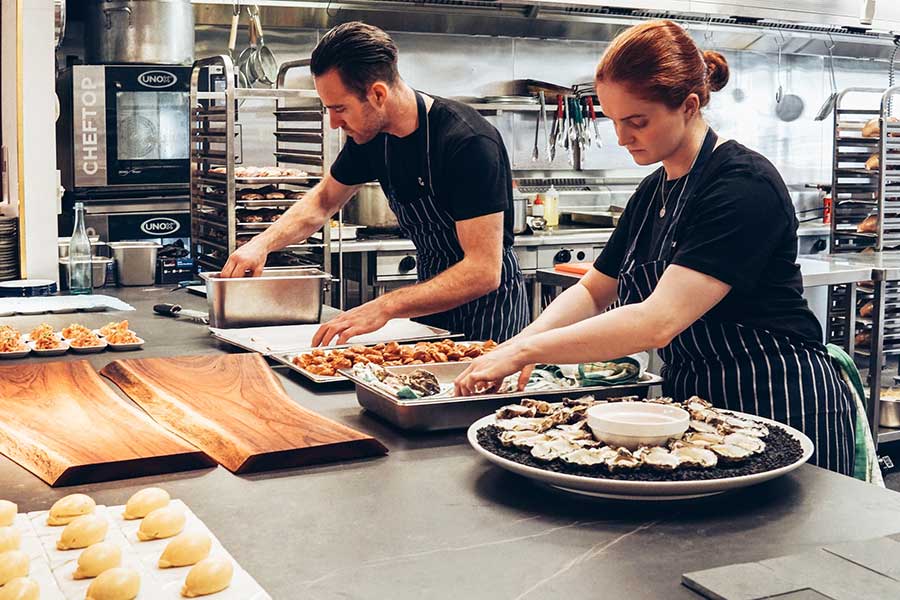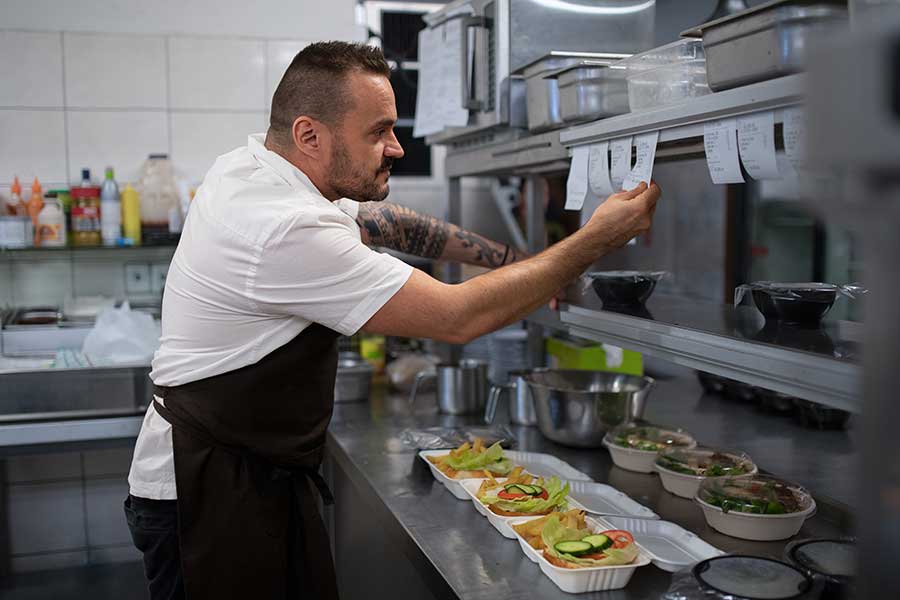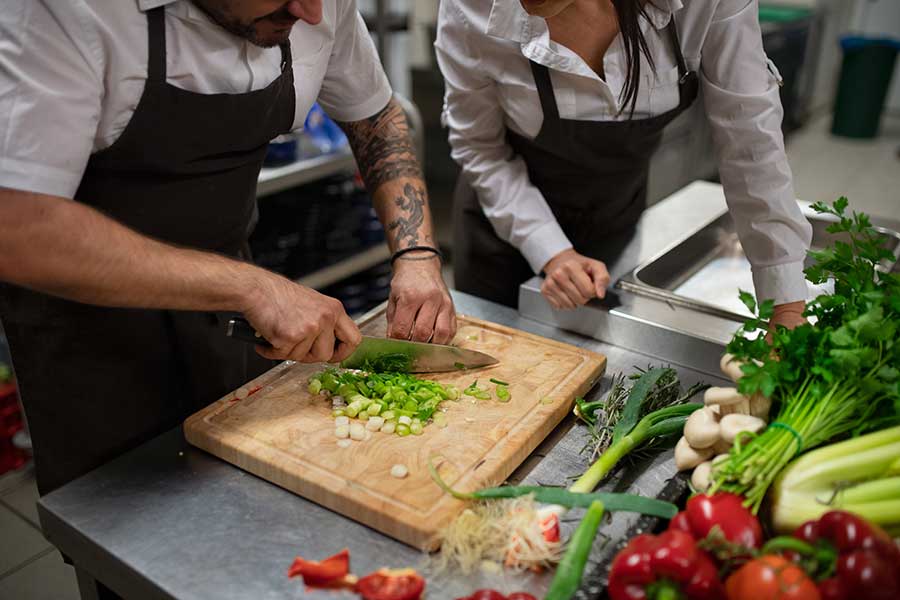

The Business Cultivator KITCHEN
We eliminate the need for small businesses to take on the debt of purchasing expensive equipment or signing a long-term lease. Instead, culinary entrepreneurs can focus on building a sustainable and profitable business. If you’re looking for access to a commercial kitchen to produce your goods in accordance with Colorado Health Department regulations, we’re here to help.
Our Program
Our Kitchen Program provides:
- 24/7 access to kitchen and commercial equipment
- Production workspace
- Cold and dry storage
- High-speed broadband internet access in kitchen area
- Food safety training
- Business management training
- Ongoing technical assistance and one-on-one consulting


Requirements
Prior to acceptance into the program, businesses must meet the following requirements:
- Certificate of Good Standing from the Colorado Secretary of State
- Business must be licensed with their local County Health Department, as well as the DCPHE and FDA (if applicable)
- Proof of Certified Food Protection Manager certification for one owner
- $1 million for product liability insurance and $1 million general liability insurance, as well as $300,000 of damage to premises rented insurance, with the Business Cultivator listed as additionally insured on the policy.
Fees
Our fee structure is as follows:
- $50 one-time security deposit
- $50 monthly membership fee (5hrs kitchen time included)
- $10 per hour after usage of 5 membership hours


Storage
- $10 per month for dry locker storage (2’x 4′ x 6′ rolling locker)
- $20-40 per month for cold storage space
- $15 per month for freezer storage shelf
Check List
To apply for kitchen use, you must:
- complete an application;
- sign a Kitchen Use Agreement; and
- sign a Statement of Operating Policies.
We intend to serve as many food entrepreneurs as possible but place a priority on those who have an interest in building successful businesses. We reserve the right to deny applications to those who pose a risk to the safety and/or security of others.


Support
There’s more to a successful business than meets the eye. Food entrepreneurs often begin with an inspiration and skill in producing wonderful foods. What they often need to succeed is training in the functional areas of business, like marketing, accounting, operations, human resources, etc.
